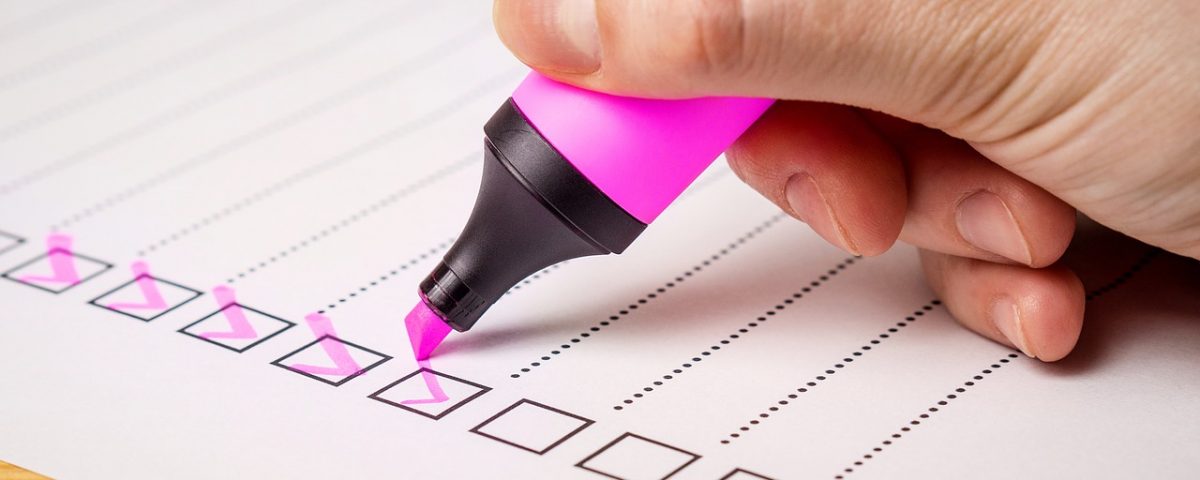The DOs and DON’Ts For SAT Preparation

Important SAT Dates to Know for 2019
February 20, 2019
20 ACT Vocabulary Words for 2019
March 13, 2019The DOs and DON’Ts For SAT Preparation
When it comes to SAT preparation, many students struggle to devise a game plan for test day. In essence, they enter the arena drastically unprepared. SAT prep is an overwhelming time for all students, so they should know how to maximize their prep time. Since we’re the masters of test prep, we’ve gathered the top DOs and DON’Ts to help you strategize a plan to conquer tee SATs.
DO Start Your Preparation as Early as You Can
The earlier a student can prepare for the SATs, the higher the chance they have to earn a higher SAT score. Try helping your child find a preparation method that best suits their needs. You may want to look into hiring an SAT tutor. These trained experts understand the ins and outs of the test, so they’re definitely the go-to source for any question your child may have.
DON’T Get Worked Up Over Studying for the SATs
While preparing as early as possible is critical to receiving a higher score on the SATs, over preparation can stress your child out and ultimately break their confidence. Along with finding the best preparation method as early as possible, you should also help your child discover the best relaxation technique that puts them at ease. Whether you suggest meditation, rest, or listening to gentle music, your child needs to tackle the SAT with confidence because entering the testing site with a single shred of self-doubt may cause your child to freeze at the most inopportune time.
DO Consider Retaking the Test
There’s absolutely nothing wrong with underperforming on the SAT because students have the opportunity to retake their SATs when needed. Reinforcing this sentiment will take a lot of weight off your child’s shoulders, allowing them to focus on trying to the best of their abilities.
DON’T Be Discouraged If You Do Not Get Your Desired Score
Again, your child has multiple opportunities to retake the SATs. If your child does not reach the score they were hoping for, encourage them to keep trying and preparing. Moreover, colleges and universities will use your child’s highest SAT score when viewing their application.
DO Have an Understanding of the Test Format
Many SAT prep courses offer practice tests throughout their courses so students can form a better understanding of the SAT’s format. Familiarity leads to confidence while reducing the number of mistakes your child may make.
DON’T Skip the Essay Portion
While the essay portion of the SAT is optional, SAT experts still recommend students to complete this section because many colleges require the essay portion in their admission process.
DO Have an Idea of What SAT Score Your School of Choice Wants
Before taking the SATs, look into the average SAT score range that your dream college looks for in applicants. This will tell the score that your child should aim for. You can find this information by visiting collegeboard.com.
DON’T Take the SATs Every Single Chance You Have
While you have more than one chance to take the SATs, taking it every single chance you get can overwhelm your child and can eventually hurt their score in the long run. Most experts recommend taking the SAT between 2-3 times.
DO Eat A Healthy Meal On Test Day
Studies indicate that a healthy diet can improve brain function, so make sure your child eats well-balanced meals leading up to the test. More importantly, your child needs a big, healthy breakfast that will keep them energized during the test. Entering a test site on an empty stomach can weaken a student’s performance, and even cause faintness.
DON’T Stay Up All Night the Night Before
Everyone needs their beauty sleep, and studies show that well-rested students perform much better on tests. If your child spends the entire night before binge-watching a Netflix series or surfing the Internet, then it’s time to pull the plug. Make sure your child goes to bed at a decent hour so her or she will feel refreshed when they wake up on test day.


